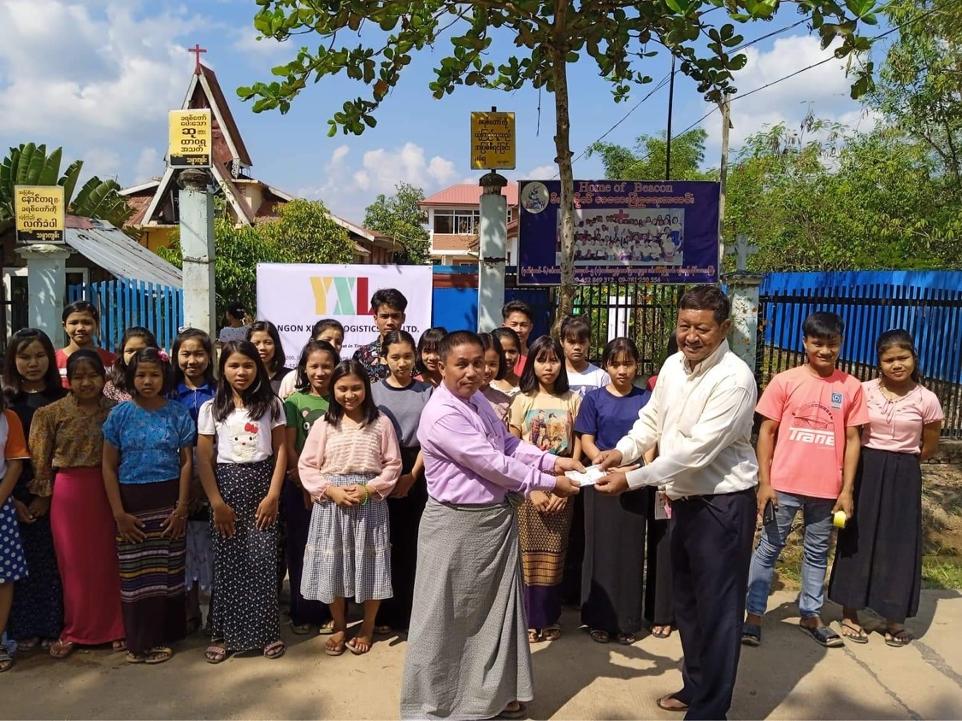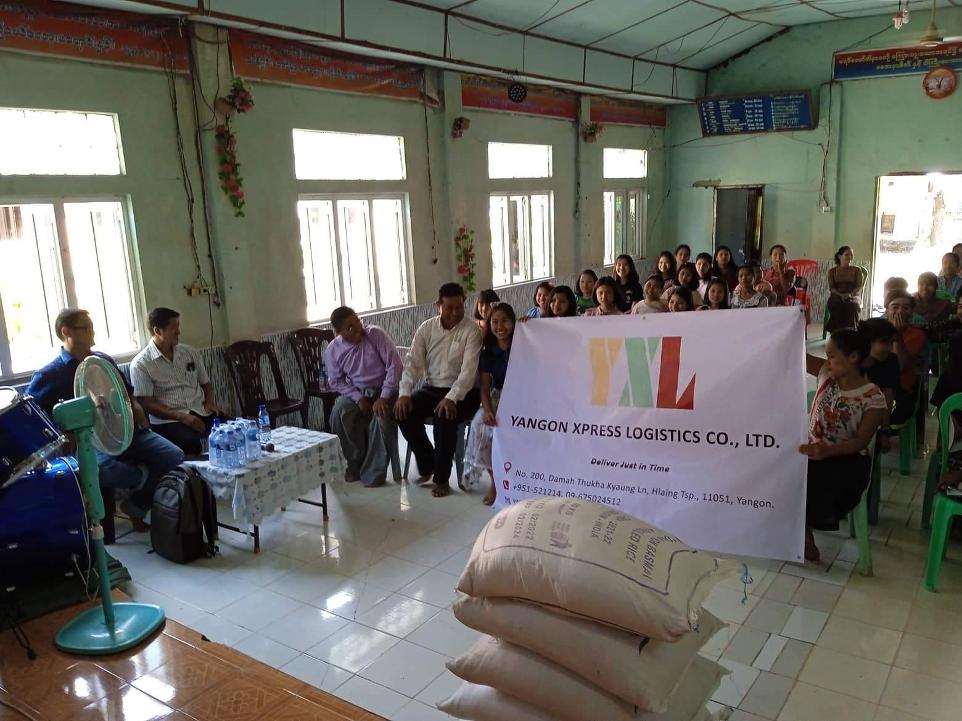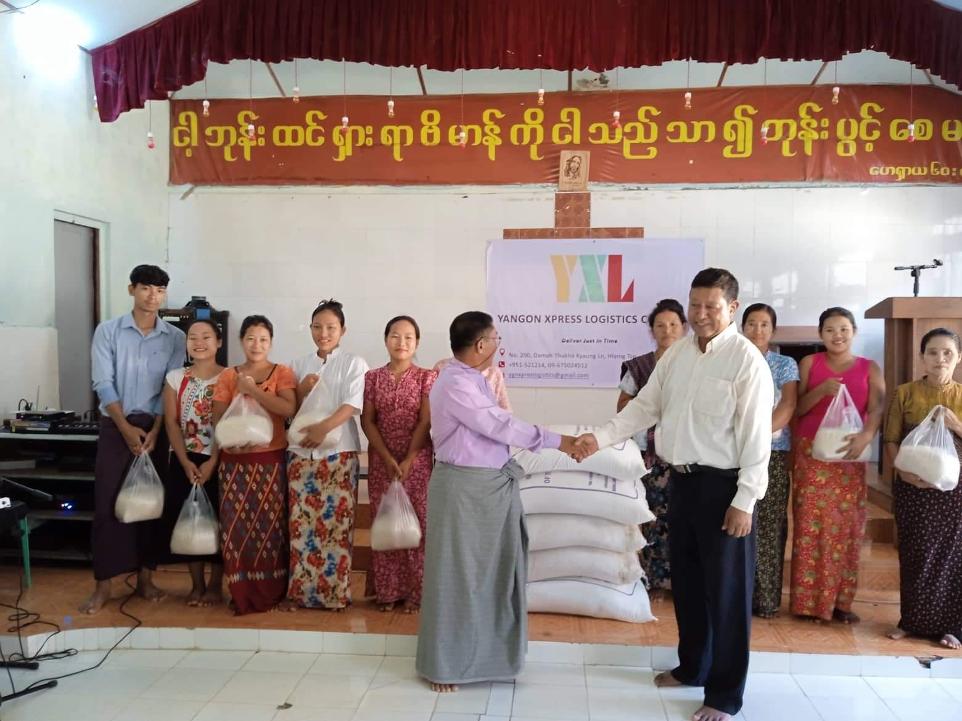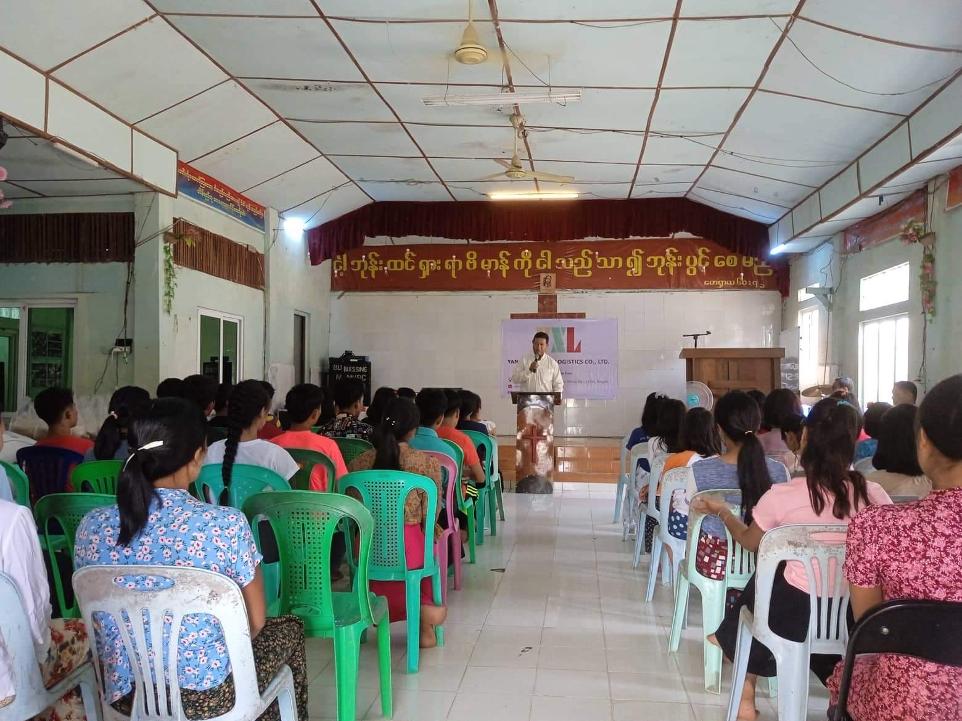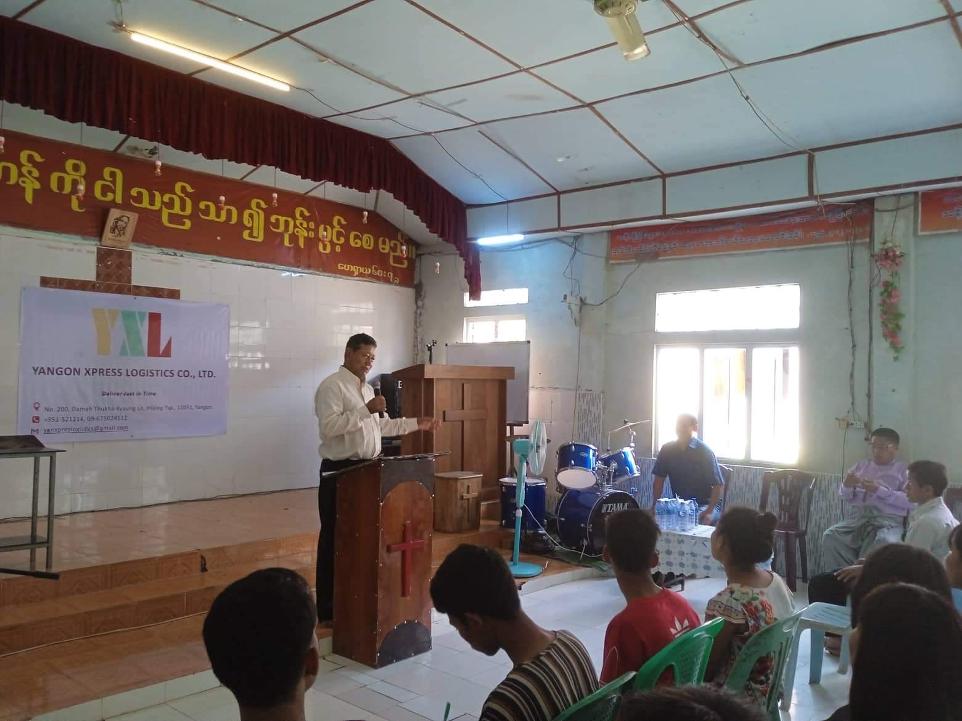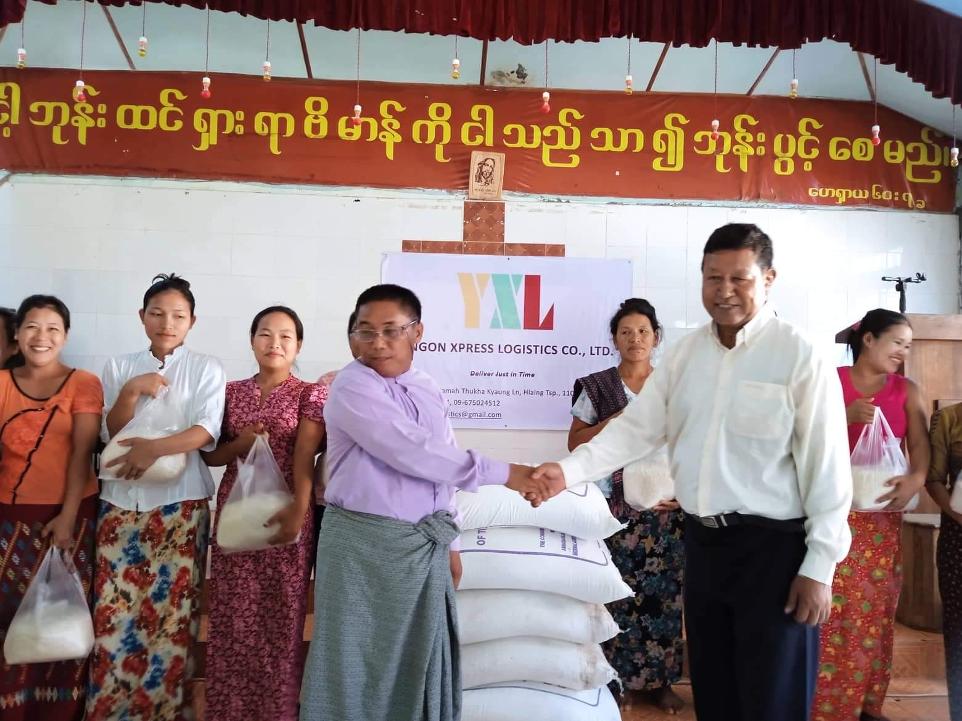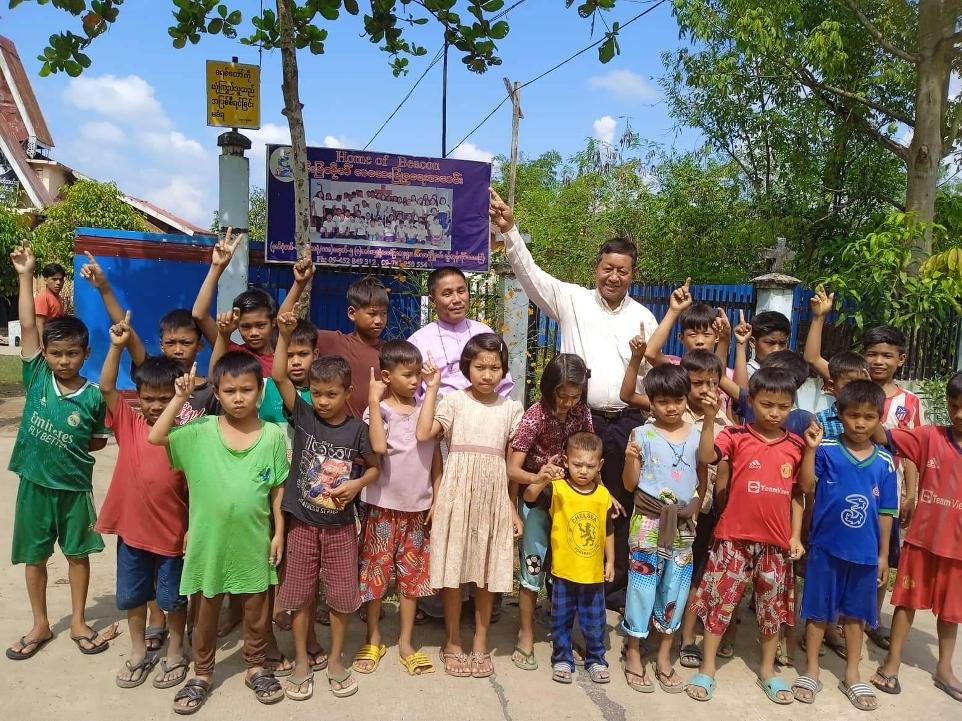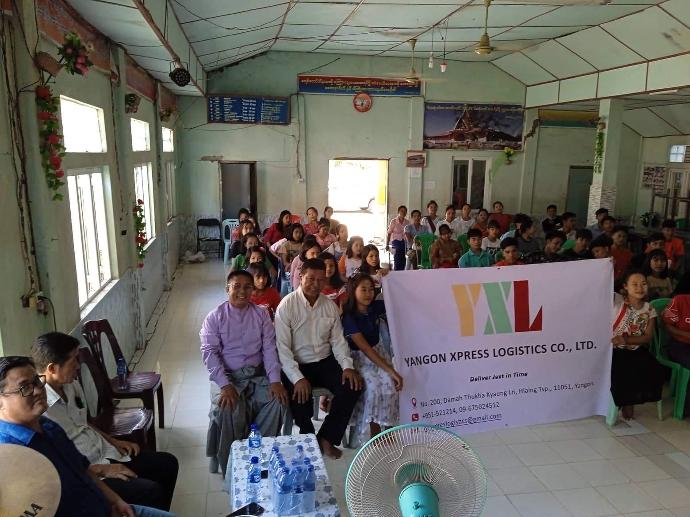Corporate Social Responsibility

At YXL, we have two or more CSR activities each year. Our first and main CSR activity is to collaborate with Yangon City Development Committee (YCDC) in collaboration of proper solid waste management. As pandemic has hard-hit rural areas, urbanization, and economic growth in the cities, have significantly contributed to the municipal solid waste production increase. Recently, addressing of waste management including collection, transportation, recycling, and disposal, become an urgent issue, these wastes can become valuable if can be well managed and converted into energy. The recent shortage of energy due to high rise of oil and other matters
can be alleviated if wastes are properly utilizing a renewable source of energy which will also benefit the countries not only in environmental sustainability but also low cost of production of energy more economically. Improper and poor waste management can harm human health and impact the environmentally sustainable as wastes contain huge amount hazardous inhabitant. Therefore, we focus on manufacturing companies in Thilawa SEZ and also households in Thanlynn and Kyautan areas for public awareness by disseminating leaflets and educational posters on how to manage and separate their daily waste.
It has been quite effective as people come to realize how important is it to separate the waste which improper management can harm the people in that area.

We at YXL believes that CSR can benefit not only our environments but also to our company itself. At YXL, we identify and integrate with the social and environmental concerns with our business and relate with stakeholders. Our CRS principle is to create a positive environment, a positive impact on society and deliver value to the society and stakeholders that would benefit community as a whole to ensure YXL remains sustainable.
Our CSR focuses on the three main priorities which are inclusive in our CSR framework, our CSR principle is based on the needs of community, education institutes, health care centers and government. The second level of framework is our core values which are defined clearly, followed by the third level of our CSR areas such that the well-being of people, recycling and reducing hazardous waste, proper management of waste, and education, knowledge sharing etc. The top level of our framework is our strategic priority such as creating value chains in logistics area, public awareness, collaboration with our partners.
Our main CSR target by 2030 is “to reduce waste disposal and proper management of hazardous waste” that could harm to human health.
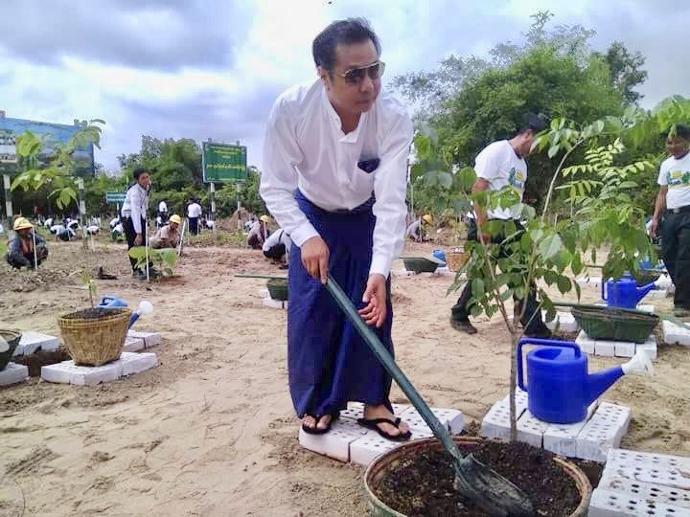
Our second CSR is to plant thousands of trees not only in the Yangon city areas but also in the air-polluted industrial zones and suburban areas each year to help reduce climate change, air purification, shelter for wild animals, to help save water, and to help reinforce soil.
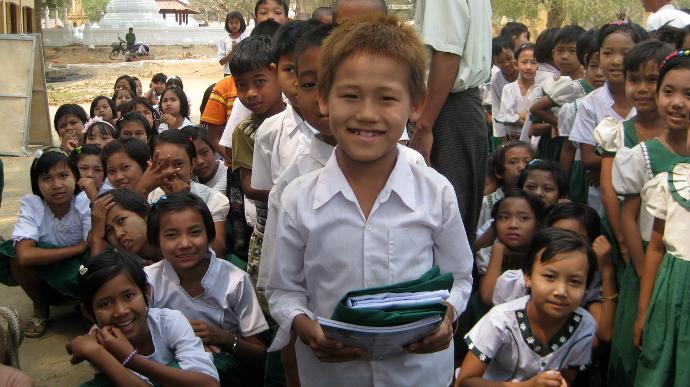
Our third CSR activity
is to distribute pen, pencils, notebooks and textbook, masks, sanitizer, face
shields and gloves to elementary schools near Thilawa SEZ area in Kyauktan. It
has not only benefit for the education journey but also help them prevent from
Covid-19. Stakeholders of a company comprised of shareholders,
employees, customers, suppliers, creditors, NGOs, local communities, and
governments.
At YXL, we undertake initiatives to promote greater environmental responsibility and we always encourage the development and diffusion of environmentally friendly technologies. We support ecological and friendly business environments. In addition to it, in our contract agreements with customers and suppliers, we agree elimination of all kinds of corruption including bribery and extortion in line with the international guidelines and standards not only on CSR but also in our business operations in logistics industry.
Yangon Xpress Logistics (YXL) builds our CSR communications to be effective and letting how our company engages with the community where we do business. Our transparency and honest communication to show how our organization’s values align with our CSR activities.
Not only involving employee in the CSR activities but also communicating with them the importance of CRS and our CSR goals within the organization. By know the true color of our CSR activities and goals, not only it retains employees but also it draws attention to prospective employees are more likely to apply for jobs with our organisations as we share our concerns and values. Internal communication comes first as it is critical that all employees are aware of how importance our activities are and what are the stakeholders’ interest in the surroundings where we operate. Externally, it is crucial that we ensure customers, prospects and the community and public understand how our organization is fulfilling its social responsibility. The effective ways of communication within the community are through the use of social media, video production, press outreach and advertising to enable us to convey our CSR in an integrated manner.
At YXL, after setting our CSR goals and corporate values, we are intensely working with stakeholders to understand their views and concerns on various environmental, social, corporate governance and our CRS interest (such as well-being of people, recycling and reducing hazardous waste, proper management of waste, and education, knowledge sharing) and to incorporate and address those views and concerns in our company’s strategic decision-making processes. Our stakeholder’s engagement is only at the local level where our fervent concern on community development and we stay connected with our stakeholders both individuals or parties that have a potential interest in our company, its operations, and financial results. Furthermore, our primary objective of corporate stakeholder engagement is to build a good relationship with stakeholders to better understand their views, perspectives, and concerns on CSR issues and to integrate those perspectives and concerns if feasible into our company’s corporate strategy.
Yangon Xpress Logistics (YXL) revised our CSR values and goals each year after as our CSR approach is to improve our social and environmental commitments. Our approach is an excellent stepping-stone to implement sustainable practices, improve our social and economic responsibility and enhance environmental performance. Our CSR approaches have direct and indirect impact on people and ecosystem
In our logistics supply chain (suppliers, rental services, warehousing and transportation industry).
Examples of the impacts:
1. Besides our own employeesYXL has an impact on another 2500-3000 jobs within suppliers, and 400 in warehousing plus hundreds in and rental services and transportation sector.
2. 87% of the turnover originated from suppliers three quarter of it from local suppliers, 13% was the added value of YXL company.
3. On the government incomes (commercial tax, customs duty, detentions, and demurrage charges of our customers), toll gates and contributions), that amounted to MMK 133 million in 2019-22.
4. Local and regional impacts: Containers, trailers and various kind of trucks are from rental services nationwide by approx 1,000 persons, there is a local and regional impact of the YXL
5. Participate in the proper management of hundreds of solid waste disposal and hazardous wastes in Yangon city area
6. Plant hundreds of trees in the Yangon city areas especially in the air-polluted industrial areas and in the suburban areas
7. Hundreds of books, stationary such as pen, pencil, erasers, rulers, and compasses are being distributed to more than 1,000 over students in Thanlynn and Kyauktan areas
8. Thousands of masks, gloves, sanitizers, face shields are being donated throughout Myanmar in an effort to prevent Covid-19
9. There is a estimated evaluation of our CSR activities about the real weight of the company in the social, environment and economy as a whole
At YXL, our CSR initiatives include environmental sustainability, social responsibility, and establishing socially and ecologically responsible business practices. Since 2019, each year YXL has trained 15-30 young graduates in logistics fields and employed 30% in the community, employee training and the employment of people from hills areas and countryside, where possible. Public awareness programs are held not only on environmental impact such as proper management of solid waste disposal and hazardous waste disposal, but we also trained logistics ground staff, warehousing staff and drivers in health and safety protocols and management and leadership training. The company has spent 3 to 5% of its revenue for our social and environmental CSR activities and helped young men and women to find their career in logistics and transportation industry.
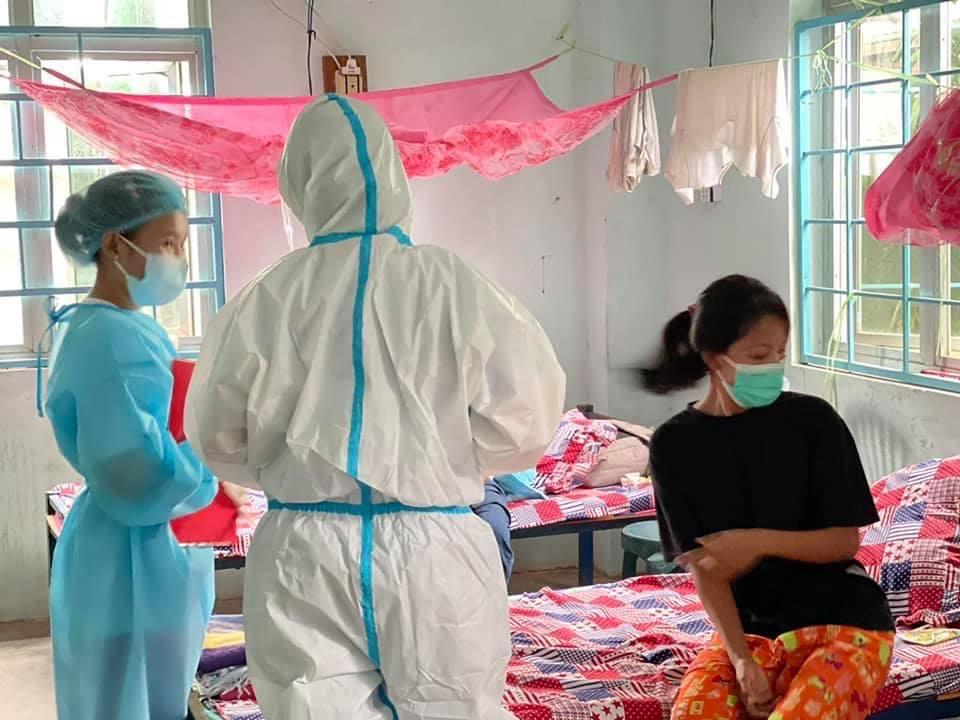
As the COVID-19 pandemic continues to impact societies since 2020 in Myanmar, however, it was vital that Yangon Xpress Logistics (YXL) has been able to maintain our commitment to corporate social responsibility (CSR) practices. On the other hand, Covid-19 pandemic offers a great opportunity for YXL to shift towards more genuine and authentic CSR and contribute to address urgent social and environmental challenges.
Since the outbreak of Covid-19, it was the interest of our employees to eagerly observe how the senior management and as employer of YXL responded to COVID-19. This has proven the level of our commitment to CSR, which aligns with the values of our CSR in our workforce. Our CSR activities contributed to the community in various ways not only in public awareness of how to take prevention measures and take precautions in order to combat with the Covid-19 which has impacted not only on society but changed the way how businesses were contacted, but also with our capacity, we have distributed masks, face shields, gloves, and sanitizers to help community prevent and contain Covid-19. Furthermore, and in addition to the training of our employees on how to social distance, the virtual meeting, the use of more technology, contactless transaction and paperless invoicing and use of email and other apps, rotation and work from home assignment and wear safety equipment to wear to prevent infections, the standard operating procedures that we created was quite useful and helpful not only to our suppliers and customers but community as a whole.
